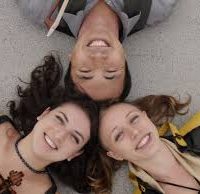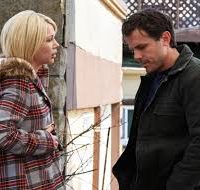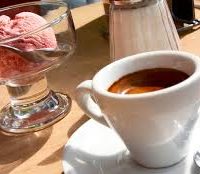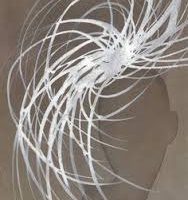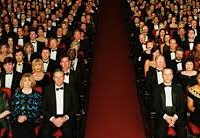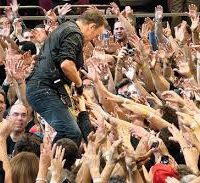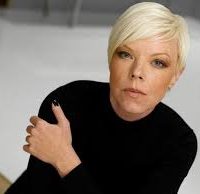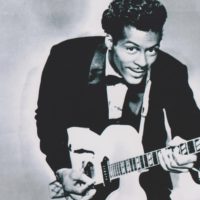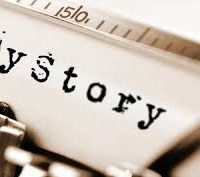What did I learn in El Paso? At the University of Texas in that town. Or UTEP, as it’s branded itself. During my visit last week. Of course (as I said in my last post) I learned what a special place the university is, with a mission to educate everyone from the poor and working-class, mostly Latino community in its town. In the musical part of my visit… I learned many things. How Zuill Bailey, the cellist — UTEP faculty member, head of the school’s new Center for Arts Entrepreneurship, and Artistic Director of the chamber music festival El … [Read more...]
Extraordinary UTEP
I could say many things about my two days last week at UTEP, the University of Texas at El Paso. About the music department, about the new Center for Arts Entrepreneurship. About Zuill Bailey, the cellist and UTEP faculty member, who’ll run the center. And whose entrepreneurial success in running four concert series makes him an ideal choice. Plus giving anyone else giving classical concerts a lesson in how to do it. And about Trio Jinx, a flute/bass/violin-viola group from Peabody, who were in residence, and whose playing — of much more than … [Read more...]
Something new in El Paso
For two days this week I’ll be at UTEP, the University of Texas in El Paso, helping to inaugurate a new Center for Arts Entrepreneurship. And giving a talk I’m calling “How We Have to Change,” on Tuesday, April 4, at 4 PM, in the Undergraduate Learning Center. Come say hello if you're there! “We,” of course, is those of us who work in classical music. What we have to do differently — how the enterprise of classical music has to change, — if classical music is going to be reborn,.and thrive. Worth a thousand words One thing I’m going to try, … [Read more...]
Is classical music consolation?
Classical music…its role in our culture…that’s something I’ve pondered for a long time, and talked about often here. aMy usual answer hasn’t been very positive. If classical music is going to focus on the past — as of course it still does; such a large percentage of performances are of music from past centuries — then is it really still art? Art is a furnace Art, I’d think, is stronger than focusing on the past. Should tell us things about who we are now, what’s going on in the world around us. Or, to use a phrase I love from the very end of … [Read more...]
Ice cream and coffee
Quite a lively discussion in class this week, about how conservatories could change. One quick takeaway: That the Juilliard graduate students in my class would love to go to a school where the focus was on how students want to make music. And where music of all genres was talked about, taught, and played. Here comes the ice cream! But of the many ideas in the readings I gave them, and the videos I asked them to watch, there was one they most loved. An ideal music school “will have pour over coffee and ice cream readily available at all times. … [Read more...]
The circle of art and commerce
Last week, in my Juilliard course on the future of classical music, one of my students asked about art and commerce. Where do they fit in classical music’s future? What roles will they play? Questions like that often come up in my work. They’re often asked — though not, I think, by this student — with some suspicion. Art is good, commerce is bad. Art is pure, commerce is, well;, commercial. Or, as another student said in this week’s class, often things that aren’t so good succeed because they’re marketed. Which of course is true. Though … [Read more...]
When the musicians play like Gods…
More about an engaged, participating audience…following up on my last post. I exchanged some email with Tom Wolf, the consultant whose firm’s newsletter I’d happily quoted. In this exchange, he told me a fine story involving Boris Goldovsky, whom I’d known of as an opera personage (host of the Met Opera’s old radio intermission feature, Opera Quiz, founder of the opera training program at Tanglewood). I hadn’t known that Goldovsky was Tom’s uncle, or that he’d been a pianist and conductor. Or that, as a musician of the old school, he’d have … [Read more...]
Audience action
Very good comment from Matthew Hodge on my Tabatha Coffey post. I’d talked about Coffey, the embodiment of tough love — just go to her site and read the powerful words you’ll see — who on a reality TV show impressively fixes failing hair salons. What — I asked participants in a workshop I led — would Tabatha change if she came to an orchestra? And I listed some of the responses I got. Things people had seen, that might revivify orchestras. Audience coming up to talk to the principal cellist during a break. Kids in a youth orchestra smiling … [Read more...]
Tabatha fixes orchestras
Here’s something I did in the workshop I led about imagining the future, at a League of American Orchestras conference. You can read about the workshop in my last post. We imagined hat in 10 years, all orchestra problems would be solved. They’d have a big new audience, community buzz, all the funding they need. So how would that happen? What would have happened to get us to that paradise? This is a workshop I’d love to do again. If you’d like to talk about it, contact me! So here’s one of the things I did. Imagine, I said, that Tabatha … [Read more...]
Imagining a bright future
Suppose in 10 years all problems that orchestras have will be solved! Suppose that orchestras have a vibrant young audience, that people all over the country are talking about what orchestras do. Suppose there aren't funding problems. And that all of this has been accomplished without the slightest artistic compromise. How -- looking back now from this imagined 10-year perspective — would we have gotten there? What would have changed? That was the conversation I led four years ago at a League of American Orchestras national conference. … [Read more...]
Black History Month: Freeing ourselves
Black History Month is over. But classical music stills needs to be more diverse, every month of the year. So another post on that subject, recycling one I wrote in 2013. That year I led a workshop at the national conference of the League of American Orchestras. My job was to ask participants — mostly orchestra staff and board members — to imagine a glorious future. Just suppose, 10 years from now, all the problems orchestras now have will be solved! Orchestras — yours included — will have vibrant young audiences, eager support from their … [Read more...]
Black History Month: Pop music is way ahead of us
Again about Black History Month, as it ends… It’s hard to find ways to honor Black History Month in classical music, because the classical music mainstream hasn’t related much to African-American life. A sad tale: When Jackie Robinson became the first black player in major league baseball — something now celebrated as a key event in American history — the Met Opera had never had a black soloist on stage. This was in 1947. Jackie Robinson played in Brooklyn, across the river from the Met. So don’t think no one thought the Met might … [Read more...]
The stories we weave are incomplete…
It’s Black History Month again, and though I haven’t blogged about it, it’s been on my mind. I’ve thought of it when I’ve gone to the Kennedy Center, and seen that their most visible gift shop this month features Chinese New Year. Which does come in February, and nothing against it. But featuring Chinese New Year over Black History Month in a black-majority city? In a time of Black Lives Matter? In a season when the biggest cultural even in DC was the opening of the Museum of African-American History and Culture? Why? Last year… …for Black … [Read more...]
True just for you
This week I learned something from a paper one of my students wrote. About how to present a case for classical music. Two words in that paper showed me something i hadn't so strongly realized. What we were working on This was a paper about why classical music is valuable, what it can do that no other kind of music can. I ask my students to think very carefully about this, because it’s crucial for classical music’s future. We need new listeners. So how do we find them? What can we say to make them think classical music can do something for … [Read more...]
What conservatories should do
What they should do to prepare students for classical music’s future. These are things I said in my talk at the Jacobs School at Indiana University. First, conservatories should make the future of classical music a major topic of discussion. I’d think this has to come from the top. The conservatory’s dean or president needs to be talking publicly about the problems we face, and about solutions. The subject has to come up in courses. Be discussed by studio teachers. There could be courses specifically about the future, like the one I teach at … [Read more...]

